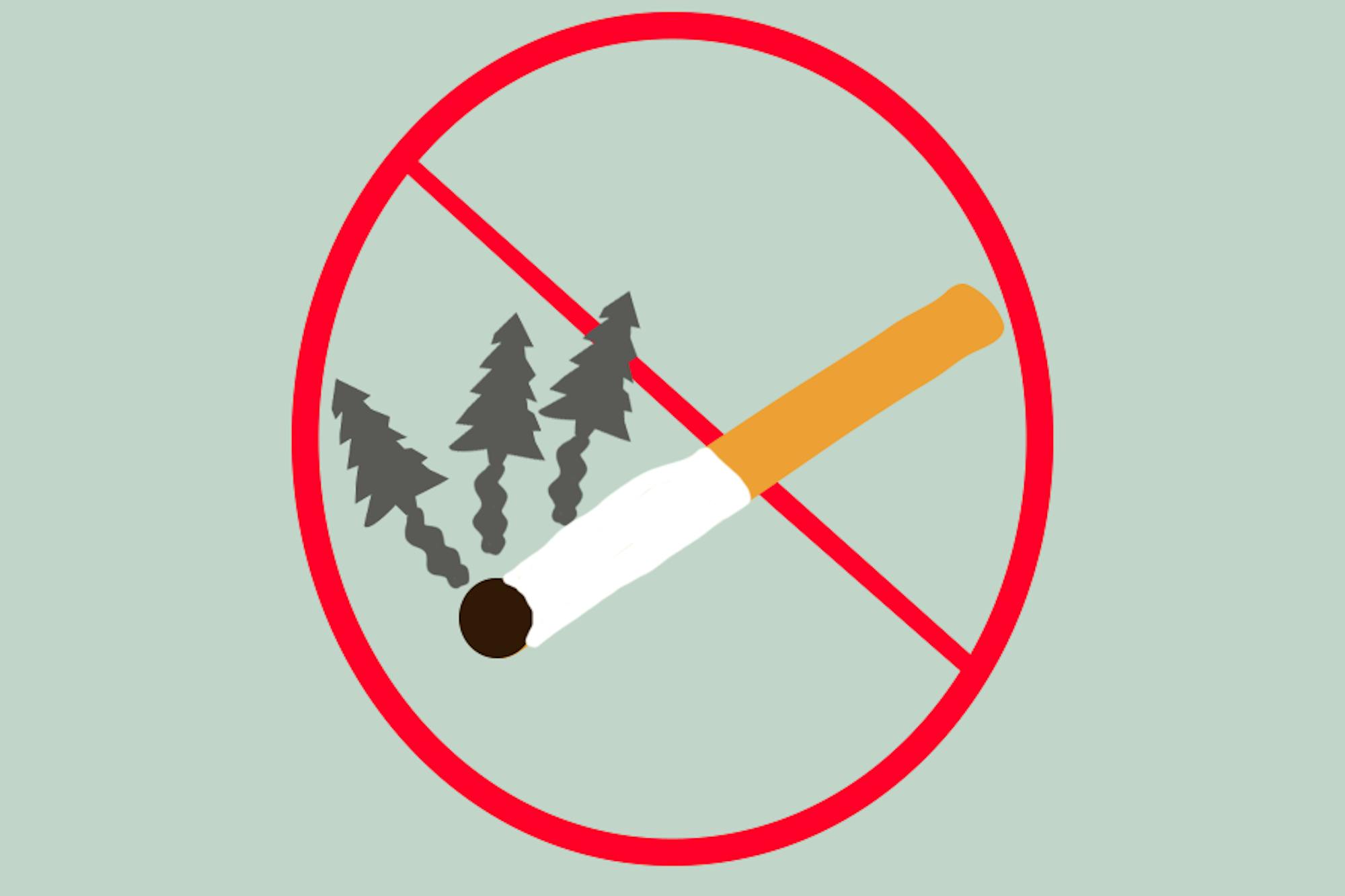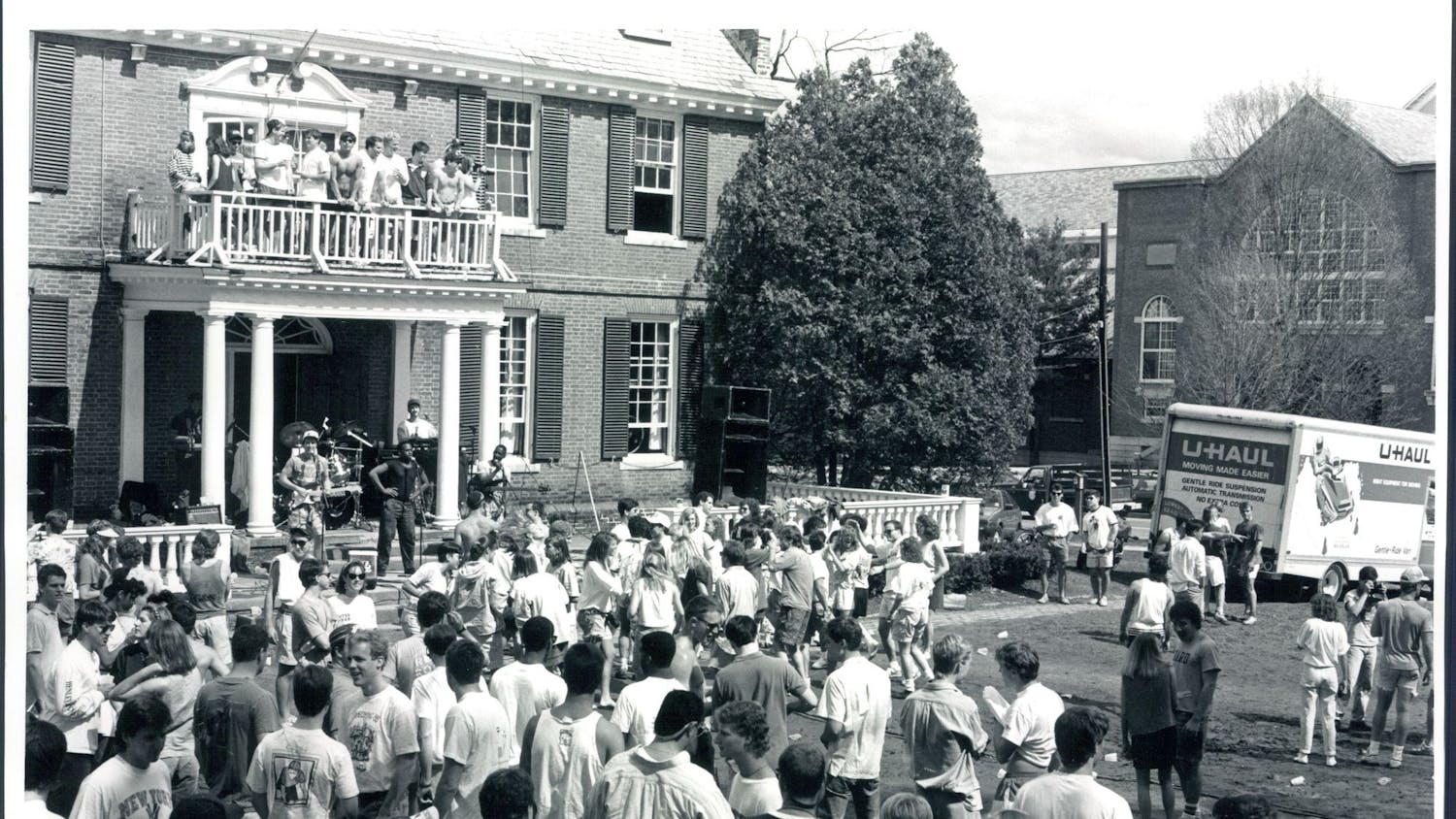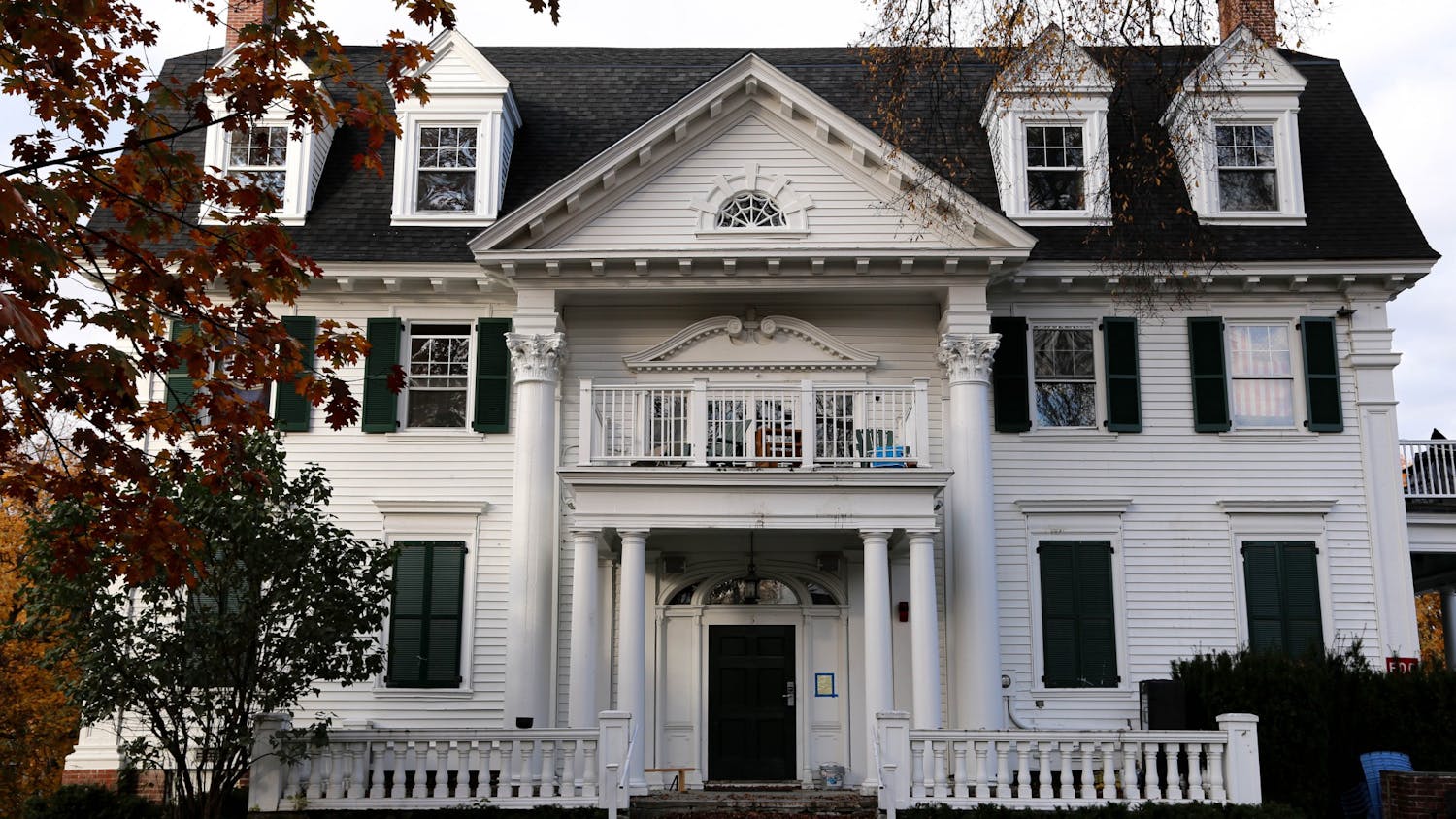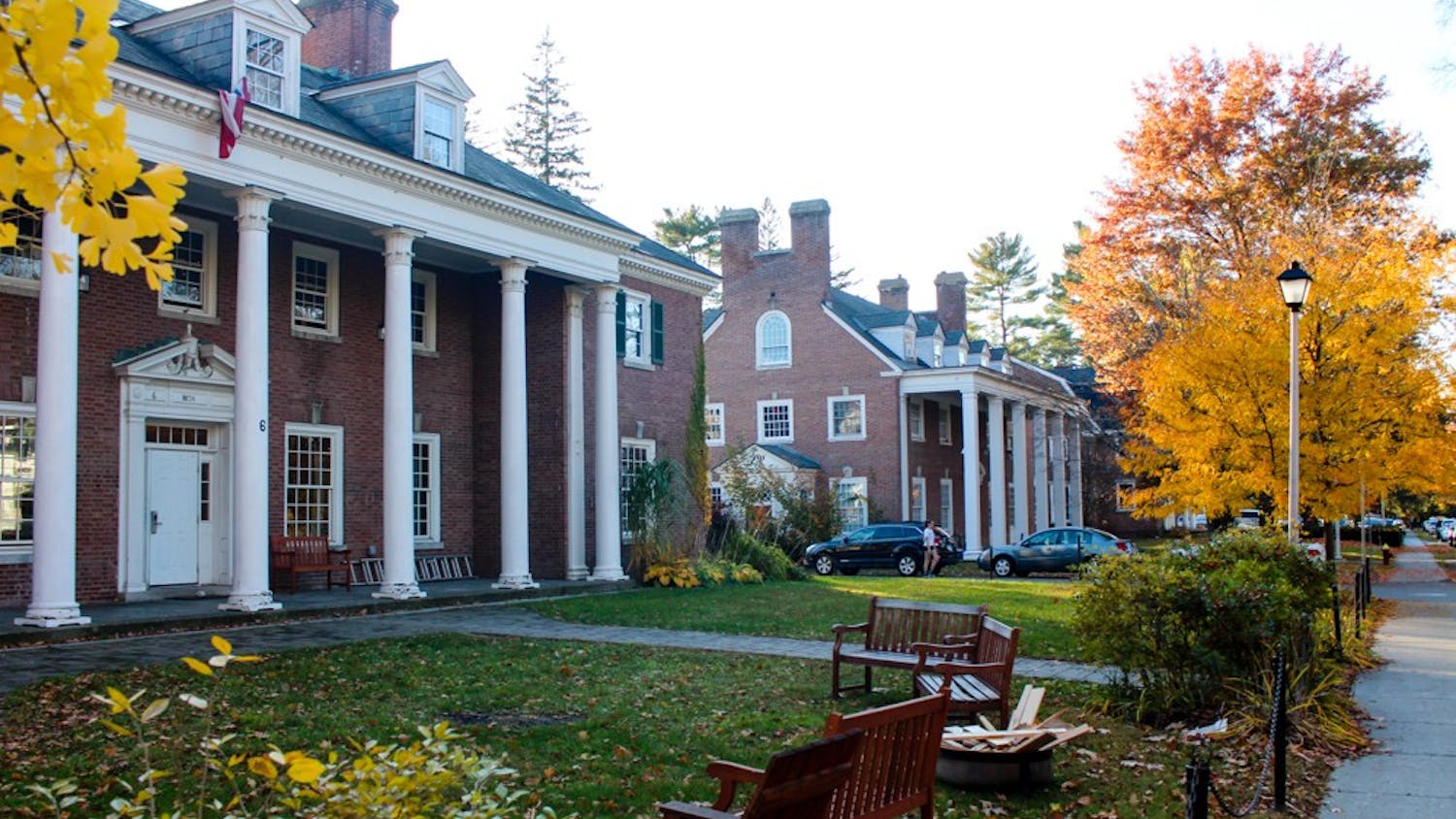This article is featured in the 2021 Winter Carnival special issue.
Dartmouth has a reputation for its rampant alcohol consumption and partying; after all, the College’s unofficial mascot is a sentient beer keg. For decades now, Dartmouth has attempted to shed this reputation and curb the prevalence of alcohol and drugs on campus.
The College’s most recent effort to do so — a soon-to-be-implemented campus-wide tobacco ban — has sparked discussions about substance use on campus and the policies used to prevent it. While some consider prohibitive policies a step in the right direction, others believe such rules fail to confront a culture that has perpetuated substance abuse on campus.
According to Executive Vice President Richard Mills, he and College President Phil Hanlon had always intended to implement changes to the College’s tobacco use policies. Mills cited health benefits as the primary motivator for the ban, adding that he hoped it would protect non-smokers from exposure to secondhand smoke. The COVID-19 pandemic was one factor that prompted the administration to finally take action, Mills noted.
“As COVID came into focus and the lung and pulmonary aspects of the virus became clear, it felt more urgent to take action,” he said.
Over the decades, the College has instituted various alcohol education programs and prohibited smoking inside campus buildings, among other initiatives to restrict substance use. In 2014, Hanlon issued a “Call to Action” that expressed the College’s interest in minimizing high-risk drinking among other prevalent campus issues, like sexual assault and lack of inclusivity. Hanlon announced the Moving Dartmouth Forward Plan in 2015, which banned the consumption of hard alcohol on campus and instituted a tiered system of bartending and security guidelines depending on the size of gatherings. The policy also strengthened the punishments for students found with hard alcohol.
Not every student believes that policies that outright prohibit the use of a substance, like the tobacco ban and hard alcohol ban, are in the best interests of the student body. Daniel Bring ’21, a former smoker, described the ban as a “useless policy that hurts the people it’s trying to help,” explaining that it “just imposes this prohibition without providing meaningful resources to help students quit.”
Bring said he believes there are certain factors in Dartmouth’s environment that encourage a culture of substance use, such as peer pressure common in Greek spaces.
“I know people in fraternities who are required to smoke or to use some form of tobacco, like chewing tobacco, as part of their pledging activities,” Bring said.
However, Bring does not feel that Greek life is the sole driver of substance use on campus.
“Dartmouth students are under an enormous degree of stress and have this isolated experience of living in the far north without a lot of interaction with outsiders or a broader culture,” Bring said. “So I think that can be sort of isolating and leads to a lot of these communities that form around this bad behavior.”
Mills used to work at Harvard Medical School, where a similar tobacco restriction was implemented. He notes that the ban “created a sort of culture change” at Harvard, and in the early stages of the ban, students seemed to take advantage of the resources and support offered to help students quit smoking.
Mills also commented that smoking is a “social moment for people who would take a cigarette break,” and the aim of the tobacco ban was not necessarily to cause this “culture shift,” either at Harvard or Dartmouth.
“It wasn’t as though, either at Harvard or Dartmouth, we thought the culture was bad.” Mills said. “What we wanted was to get away from the bad health effects and the unintended consequences or ancillary consequences of this cultural phenomenon.”
One notable critic particularly of Dartmouth’s alcohol-driven culture has been Andrew Lohse ’12. An alumnus of Sigma Alpha Epsilon fraternity, he chronicled his experiences with Dartmouth’s drinking culture in a 2012 Rolling Stone article, “Confessions of an Ivy League Frat Boy: Inside Dartmouth’s Hazing Abuses.” Lohse said he felt that the student culture at Dartmouth was unique compared to other Ivy League schools like Harvard University or Princeton University because the social hierarchy was based more on its drinking culture than on family ties and connections.
“In order to be moving among the social groups to meet people, to meet girls, get tapped for a secret society, all these social goals that people had in mind, they all kind of happen through drinking culture,” Lohse said. “I feel like there was a positive aspect … to the insane drinking culture in the sense that it was democratizing. If you could drink a lot and you were fun to hang out with, that was an avenue to attain social capital.”
Lohse matriculated in 2008, and then took time off during his junior year after he was arrested for disorderly conduct following an incident in which, according to an October 2011 police report, he allegedly threw a chair in the direction of a security guard while intoxicated. In the wake of the incident, Lohse would go on to divulge details of his time at Dartmouth in a tell-all Rolling Stone piece. When he returned to campus in 2015, he noticed that changes had already begun to take shape under Moving Dartmouth Forward.
“You would have all kinds of monitors at parties and in the basement that would be exerting a level of authority on what people were doing,” Lohse said. “And then some fraternities were permanently banned, and SAE became whatever it is now.”
According to the College’s most recent evaluation of Moving Dartmouth Forward, alcohol-related incidents involving Safety and Security or the Office of Residential Life, as well as medical encounters with Health Services or Dartmouth-Hitchcock Medical Center for intoxication, did not immediately decrease after the initiative’s implementation, though there was later a steep decline in both between the 2018-2019 school year and the previous year. Meanwhile, Good Samaritan calls have increased slightly and medical encounters involving blood alcohol levels above 0.25 have remained steady since the program’s launch.
For a long time, Lohse believed the College needed to abolish Greek life in order to address the campus’ alcohol and drug culture. However, in light of more recent attempts by Dartmouth to establish alternate communities, like the house community system, Lohse believes the solution is more nuanced. Because the house communities are involuntary, he does not think there is any meaning in belonging to that group identity.
“There should be a middle ground between this and [allowing Greek organizations to] outright abuse people,” Lohse said.
Correction appended (Feb. 23, 2021): A previous version of this article stated that Lohse threw a chair at a security guard. The article has been updated to clarify that according to an October 2011 police report, Lohse allegedly threw a chair in the direction of a security guard.
Arielle Feuerstein ’24 is an English major from Bethesda, Maryland. She currently serves as the production executive editor, and in the past, she wrote and edited for Mirror. In addition to writing, Arielle enjoys crocheting, board games and walks around Occom Pond.




